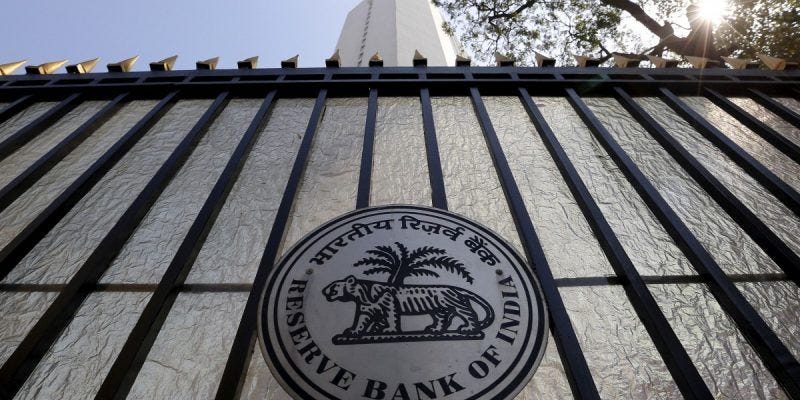
India is launching a digital rupee

The RBI has been exploring the potential of a central bank digital currency for some time, and on Friday, The Reserve Bank of India released a "concept note."
According to the concept paper, the Indian central bank will start "limited pilot launches" of the digital rupee for specific use cases.
The RBI stated that it has been weighing the pros and cons of introducing a central bank digital currency "for some time." the 51-page document explains the "objectives, choices, benefits, and risks of issuing" a CBDC in India.
Here's everything you need to know:
The final design of the digital rupee may change depending on the results of the RBI's pilot tests since it is still in the planning stages.
The upcoming CBDC, also referred to as e₹ (e-rupee), is identical to banknotes, but being digital is supposed to make it easier, faster, and cheaper.
CBDC is an additional form of currency issued alongside paper money. No replacing!
It will also serve as an alternative to cryptocurrencies.
The RBI has suggested a model in which commercial banks distribute the e-rupee, but it is issued by the RBI itself.
You can keep the digital rupee in a wallet with a bank or service.
The central bank is considering the release of two versions of a CBDC: retail and wholesale.
Retail e-rupee would offer safer means for citizens to make retail payments - "token-based"
Wholesale e-rupee could make settlement systems more efficient and secure - "Account-based"
One cannot mine CBDC like cryptocurrencies - No environmental concerns.
Partial anonymity: It wouldn't be as anonymous as physical notes, and you wouldn't know all the details like you would with a bank transfer. Here, small transfers can be anonymous, but not large transfers.
The RBI has proposed offline functionality for the digital rupee - which is limited, in order to reduce synchronisation issues.
"It is the responsibility of central bank to provide its citizens with a risk free central bank digital money which will provide the users the same experience of dealing in currency in digital form, without any risks associated with private cryptocurrencies," says the concept note.
DeGods discontinues NFT royalties, says all marketplaces will switch to 0% model.
Widely known Solana NFT project DeGods has changed to a 0% royalty structure, which means it will no longer get royalties from selling its NFTs.
DeGods claimed that although it continued to think that royalties were an "amazing use case" for NFTs and would help artists who sought ways to enforce them, this was the best course of action for its business.
While companies like OpenSea and Magic Eden have steadfastly supported royalties, new markets and rivals have adopted a more accommodating stance. Recently developed websites like SudoSwapAMM and YAWWW enable consumers to buy NFTs without paying royalties.
However, a lot of people continue to think it's a wrong choice because royalties keep the project going after the mint money runs out and also encourage the team to "work harder." Maybe we should wait and observe how everything plays out for the marketplaces.
Decentraland Gears Up for its Second Annual Metaverse Music Festival
Decentraland will hold a second season of its star-studded Metaverse Music Festival following the success of the event last year (MVMF). It is going for a complete update to deliver the finest experience ever.
The previous event included over 80 bands, including renowned artists like 3LAU, Alison Wonderland, Deadmau5, and Paris Hilton, who took centre stage in Decentraland's festival sector.
Over 50k POAP tokens and 11k NFTs were exchanged, making this one of the greatest metaverse events ever.
The Metaverse Music Festival will run from November 10 to November 13, 2022, and the users can RSVP for the event through the official website. The Event is entirely free, and maybe you guys should give it a try.







